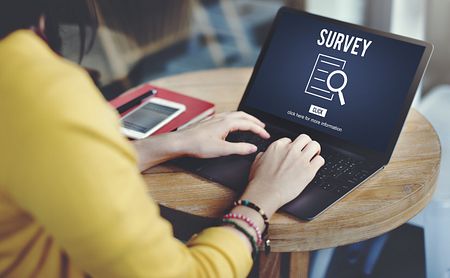UK Study to Compare Struggles of Patients With ‘Long-COVID-19’ and MS
Written by |

Researchers in the U.K. are seeking patients who found it difficult to return to work or school after a diagnosis of multiple sclerosis (MS) or COVID-19 to participate in a survey that aims to gather more data on the physical and mental health of individuals with these conditions.
Both MS and long-COVID-19 — the name now being used for cases in which people continue to experience COVID-19 symptoms after the infection has passed — involve gradual recovery periods, according to researchers from the University of Nottingham, in England, who are conducting the survey.
Individuals with so-called long-COVID syndrome, sometimes referred to as COVID “long haulers,” often find themselves too unwell to return to activities such as work and education for weeks to months after infection.
Comparing the features of these two medical conditions, the investigators hope, could shed enough light on “long-COVID” syndrome to more accurately tailor rehabilitation efforts to those patients.
“The few months following the first recoveries gave rise to issues linked to patients struggling to return to their normal life after recovery with some patients who were hospitalised with COVID-19 developing a post-COVID-19 syndrome that is not resolving after several months,” the survey’s information page states.
“The aim of the study is to understand the characteristics of this syndrome in order to tailor an intervention to these patients to rehabilitate them back to work. As such, we would like to compare COVID-19 patients to patients with multiple sclerosis because they are both illnesses from which patients make a gradual recovery — and to participants who have had neither multiple sclerosis nor COVID-19,” the information page states.
Although older people and many with serious medical conditions are most at risk for long-COVID, young people and many who are otherwise healthy continue to experience it as well.
Common lingering symptoms include fatigue, shortness of breath, and chest pains, as well as muscle pains, headache, a fast or pounding heartbeat, and the loss of smell or taste. Problems with memory, concentration, and sleep also have been commonly reported.
Of note, in addition to COVID long haulers and MS patients, the researchers also are inviting people who have experienced neither COVID-19 nor MS to participate as healthy volunteers, commonly known as controls.
Specifically, the investigators would like to hear from people who have had a COVID-19 diagnosis and experienced difficulties returning to work or education, or have had an MS diagnosis and faced similar difficult experiences.
Volunteers will complete an online survey, mostly with questions about their mental and physical health, after which they will have the option for a follow-up telephone interview. Participants from the COVID-19 and MS groups also will receive a second survey after 16 weeks, or about four month.
After completing the first survey, participants may enter to win one of two £50 (approximately $70) vouchers in a prize drawing to be held on Dec. 1. Those who take part in the telephone interview will receive £15 (approximately $21).
To participate, individuals should have been employed, in school, or doing charitable work on March 1, 2020.
The survey will be available until this summer; it can be found here, along with more information.
All personal information will be kept confidential and any expenses incurred, such as by purchasing data for mobile video conferencing, will be reimbursed.
The project is a collaboration between the University of Nottingham and the Applied Research Collaboration East Midlands. Funding will be provided by Santander UK, which also has donated to Nottingham’s COVID-19-related mental health research program.


